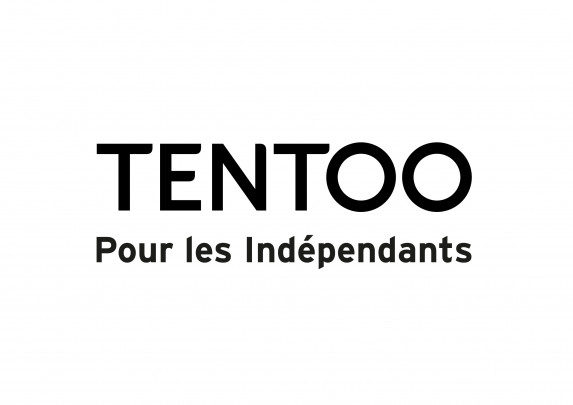What are cosmetics?
Cosmetics are all products that perform one (or more) of the following functions for our bodies:
- clean (e.g. soap)
- protect (e.g. sunscreen)
- nurture and keep in shape (e.g. day cream and toothpaste)
- remove unpleasant odours (e.g. deodorant)
- perfume
- change the appearance (e.g. hair colouring and mascara)
How do I market my own cosmetic product?
Cosmetics, of course, must be produced before they can be marketed. This can be done in three different ways:
- produce them yourself,
- have them produced by a third party,
- or have them imported.
Whichever way you choose, you must remember that, as a brand owner, you are always responsible for the products. If the products contain prohibited ingredients or if customers complain because of unforeseen unwanted side effects, you will be held responsible and accountable. Even if a third party was responsible for importing or manufacturing it, you are ultimately responsible. So choose the partners with whom you are going to work wisely (quality, reliability, verifiability, etc.)
What regulations govern cosmetic products?
In terms of the law, there are two legislative texts on cosmetics: one European and one national. First of all, European Regulation No 1223/2009 in which legislation can be found on the labelling and composition of the product (banned ingredients, restricted substances, prohibited colourants, preservatives and UV filters, etc.). And also the Royal Decree of 17 July 2012 (FR). This contains, for example, the legal definition of a cosmetic and the entrepreneur's obligations towards the competent authorities.
In Belgium, the FPS Public Health, Safety of the Food Chain and Environment is the competent authority.
What are the obligations before you can market your cosmetic brand?
TECHNICAL FILE
All cosmetics you wish to place on the market must have a technical file that complies with Articles 10 and 11 of the European Regulation 1223/2009. This file contains detailed information about the product, including a safety report on the composition of the product and its instructions for use.
SAFETY
The safety assessment (quality of raw materials, manufacturing process, composition, effects) of a cosmetic product must be conducted by a qualified person in charge. This means any person, outside or inside the company, who is a European qualified pharmacist, toxicologist or physician.
So you can decide for yourself whether to choose a qualified person in Belgium or from another Member State.
When that person confirms the safety of a cosmetic product, they also become responsible for its reliability.
There is a cost involved in this safety assessment. Don't forget that you can apply for assistance from the Brussels-Capital Region: the business project premium: to develop your ideas or the business project premium: to explore your project in more depth if you do not yet have a company number, or the consultancy premium if you are already registered with the Crossroads Bank for Enterprises.
CPNP NOTIFICATION
Before you can market your cosmetic products, you are also required to register them in the European Commission's: CPNP database: Cosmetic Products Notification Portal (CPNP). To make that notification, however, you must first create a profile.
Thanks to that online database, the FPS Public Health and the Poison Control Centre always have access to the information about the product (its composition).
LABELLING
The labels of cosmetic products must include all kinds of mandatory information. The following information must be included:
- the name and address of the responsible person,
- the nominal content,
- the minimum shelf life,
- the instructions for use (if necessary),
- the lot number,
- the function (unless it is self-explanatory),
- the list of ingredients.
There are also the general labelling requirements. You can find them on the website of the FPS Economy, SMEs, Self-Employed and Energy. For example, you must adhere to the language requirements. The label should be easy to understand for the user. It must, therefore, be drafted in all the languages of the region where the product is sold (in other words, in French and/or Dutch and/or German).
OTHER REGULATIONS?
Yes, there are other requirements you must meet as the person who is responsible for your cosmetics. These are rules concerning the product's storage, shelf life or undesirable side effects. You can find them in the brochure ‘Your own cosmetics brand, much more than a label ’ by the FPS Public Health, Food Chain Safety and Environment. Their cosmetics department can be reached at +32 (0)2 524 97 97 or via e-mail apf.inspec@sante.belgique.be.
Who can help you?
There are a number of public and private agencies that can help you launch your business project as a whole, for example, by offering you support in preparing the business plan, seeking funding and government support, or conducting market research. Thanks to our wizard ‘Who can help me?’ you will find out which institutions are involved. The 'I want' search tool makes the wizard easy to use!
You can also turn to private bodies that specialise in cosmetics, such as the Belgian Society of Cosmetic Chemists (BVCS). On their website you will find a yearbook of consultants, producers, service providers, etc.
There is also an association called DETIC. They provide guides, among other things, in which you can find useful additional information (e.g. in the guide on the code of advertising for cosmetics). They have also listed some useful links, such as an overview of sector-based initiatives.
You can also seek advice from the following website: Risk-assessment and regulatory services - belgiancosmetics.be
Who can help me ?




